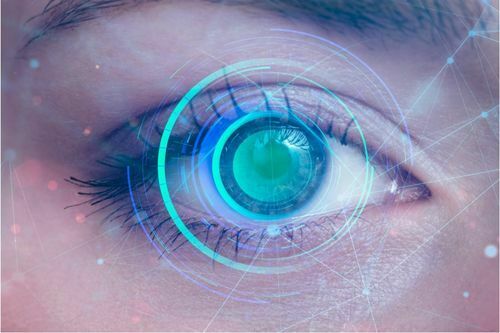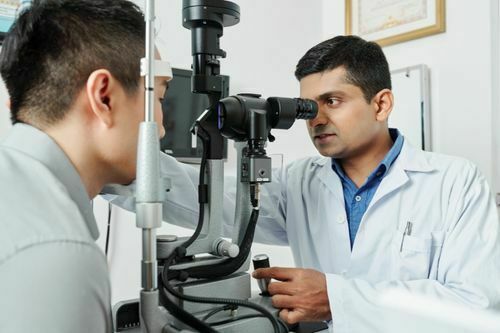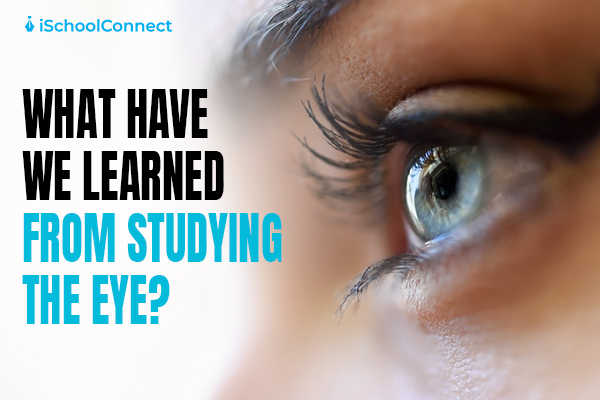Table of Contents
An ophthalmologist is a medical expert specializing in diagnosing and treating eye diseases He is a well-recognized scholar possessing knowledge of the study of the eye. Ophthalmologists must complete the following courses to practice in the United States:
- Four years of college followed by a medical degree
- A postgraduate clinical year of twelve month period
- At least thirty-six months of ophthalmology-focused residency training
- Accreditation by the American Board of Ophthalmology, which consists of Written and oral tests
Some ophthalmologists complete a year or two of fellowship training in one of the several ophthalmology subspecialties, such as:
- Glaucoma
- The corneal surface
- The eye’s retina
- Uveitis
- Cataract surgery
- Pediatrics
- Neuro-ophthalmology
- Reconstructive and plastic surgery
- Oncology of the eye
Ophthalmologists typically undergo training that allows them to work with complex eye disorders, those that involve a specific eye region, or those that impact certain groups of people. They also receive more thorough training than typical ophthalmologists to execute complex procedures on delicate eye areas.
What diseases do they treat?

Ophthalmologists are in charge of identifying, preventing, and treating practically all eye disorders and vision problems.
Subspecialist ophthalmologists, on the other hand, tend to treat and monitor specific conditions, such as:
- Glaucoma
- Retinal disorders, such as macular degeneration and diabetic retinopathy
- cataracts
- Instances involving children or diseases affecting children’s eyes
- Situations involving a neurological cause or component, such as optic nerve Issues, aberrant eye movements, double vision, and some types of vision loss
- Cases involving extensive vision repair or reconstructive surgery
Aside from care for the eyes and vision, an ophthalmologist’s medical knowledge may enable them to detect symptoms of illnesses unrelated to the eyes. They can refer clients for proper therapy in such circumstances.
Many ophthalmologists are also involved in scientific research concentrating on the causes of eye and vision disorders and potential treatments.
What are their procedures?
Most ophthalmologists have received substantial training and certification to tackle various medical and surgical treatments. An ophthalmologist’s treatments regularly are determined by multiple factors, including the practice and specialty in which they work.
Some of the most common daily treatments performed by an ophthalmologist include diagnosing and monitoring moderate eye and vision disorders. In addition, they will spend time prescribing and fitting glasses and contact lenses to remedy visual impairments. Ophthalmologists typically do fewer procedures daily, focusing instead on treating one or a few associated disorders.
Subspecialists frequently undertake the following procedures

- Diagnosis and treatment of moderate-to-severe eye diseases
- Cataract removal
- Glaucoma treatment
- Refractive surgery for vision correction
- Cancer therapy
- Reconstructive surgery to correct congenital faults or injuries, such as crossed eyes
- Tear duct infections or obstructions that are chronic or severe
- Removing a neoplasm (tumor, cyst, or foreign item)
- Cases involving other illnesses, such as diabetic retinopathy or immunological Disorders, are monitored or consulted.
- Injections on all sides of the eyes and face of changing the function and look of the facial structure
- Retinal repair for injured or detached retinas
- Corneal transplantation
When should you see an ophthalmologist?
- Most patients visit an ophthalmologist because they have persistent or severe vision issues or evidence of an eye condition, such as:
- Eyes that bulge
- The vision that is diminished, distorted or blocked
- A lot of tearing
- Defects or difficulties with the eyelids
- Noticing colorful rings or halo effects surrounding lights
- Eyes that are misaligned
- Floaters are black specks or strings that appear in the field of view.
- Viewing bright flashes
- Inexplicable redness of the eyes
- Peripheral vision loss
If a human being has the following symptoms, they may require emergency attention from an ophthalmologist:
- Unexpected vision loss or alterations
- Incredible or acute eye pain
A person may also be referred to an ophthalmologist if they have conditions or risk factors for eye diseases, such as:
- Elevated blood pressure
- Diabetes
- A family history of eye problems
- HIV
- Graves’ disease, for example, is a thyroid disorder.
- A person is frequently referred to an ophthalmologist by a family doctor, pediatrician, emergency department doctor, or optometrist.
According to the American Academy of Ophthalmology, persons should undergo a comprehensive medical eye exam by age 40 so that an ophthalmologist may develop a baseline profile of their eye health.
Having a baseline for eye health is crucial because it allows doctors to more easily recognize and track eye or vision abnormalities, which are sometimes subtle and difficult to detect. Even healthy persons might develop severe eye diseases unexpectedly.
Key takeaways
- Ophthalmologists are medical practitioners who have received specialized training in the diagnosis and treatment of eye and visual disorders.
- Some ophthalmologists specialize in a particular discipline of ophthalmology that deals with certain operations, parts of the eye, or populations.
- Someone may also consult an ophthalmologist if they are at a higher risk of eye disorders or have medical issues that frequently cause visual problems.
Liked this blog? Read next: 6 things you should know about becoming a veterinary doctor
FAQs
Q1. What is the difference between an optometrist, an ophthalmologist, and an optician?
Answer- An ophthalmologist is a medical practitioner and surgeon who specializes in eye disease treatment and ocular health promotion. Ophthalmologists normally complete an undergraduate degree at a university, followed by medical school and five years of residency training.
An optometrist is a primary eye care provider who helps with an eye examination, diagnosis, treatment, and prevention. Optometrists are also qualified to provide prescriptions for glasses and contact lenses.
An optician is a technician who is trained to fit and supply glasses, contacts, or other vision-improving products. Opticians earn a two-year college degree.
Q2. What exactly is glaucoma?
Answer- Glaucoma is an optic nerve disease that destroys the fibers of the optic nerve, producing a narrowing of the peripheral visual field and vision loss. The optic nerve is in charge of delivering the images you see from your eye to your brain. The goal of glaucoma treatment is to protect the optic nerve by reducing eye pressure.
Q3. What exactly are cataracts?
Answer- Cataracts are a cloudiness of the lens of the eye caused by aging or other conditions such as injury or certain drugs. The cloudiness makes vision worse.
Early-stage cataracts can be helped by wearing glasses or using contact lenses. However, if the cataract is interfering with your regular activities, you may require cataract surgery. If you are having cloudiness in your eyesight, consult an ophthalmologist.







